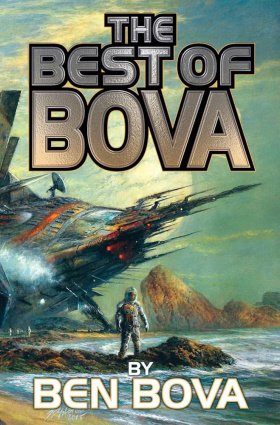He hoped.
Pushing through the heavy steel door, Tom saw that the control center really was empty. Even the ceiling lights were off; the only light in the cramped little room came from the computer screens, flickering off the walls in an eerie greenish glow.
The big display screen on the wall showed the telescopes outside, big spidery frameworks of steel and aluminum pointing out at the black night sky.
His heart thumping faster than usual, Tom went straight to the console where the new telescope was controlled. He sat in the little wheeled chair, just as his father would. For a moment he hesitated, then, licking his lips nervously, he booted up the computer.
“Happy birthday to me,” Tom whispered as the screen lit up and showed a display of icons.
Dad’s going to be pretty sore when he finds out I used the new ’scope before anybody else, Tom thought. But if I discover something, something new and important, maybe he won’t get so mad. Maybe I can find the pale blue dot he’s been looking for.
Tom knew the telescope was already focused on a particular planet orbiting a distant star. He leaned forward in his chair and pecked at the keyboard to get some pictures on the screen. Up came an image of the planet that was being observed by the new telescope: a big slightly flattened sphere covered with gaudy stripes and splotches of color. Along the bottom of the screen a data bar showed what the telescope’s sensors had determined: the planet’s size, its density, the chemical elements it was made of.
Tom saw that the planet was a lot like Jupiter, but much bigger. A huge gas giant of a planet, without even a solid surface to it. So very different from Earth. Seven hundred light years away. He calculated quickly in his head: That’s forty-two trillion miles. I’m seeing this planet the way it looked seven hundred years ago; it’s taken light that many years to cross the distance from there to here.
Then his breath caught in his throat. From behind the curve of the planet’s rim, Tom saw something new appearing.
A moon, he realized. It had been hidden behind the planet’s huge bulk. Glancing at the data bar he saw that this moon was almost the same size as Earth. And it gleamed a faint, soft blue.
A pale blue dot! As the distant moon moved clear of the planet it orbited, Tom saw a world that looked like Earth.
He yanked the phone from its holder and punched out his father’s number. “Dad! Come quick! Quick!”
Before his father could ask a question Tom hung up, bent forward in his chair, staring at this distant blue world.
Then he looked again at the data bar. This world showed no water. No oxygen. The blue color was from methane, a deadly unbreathable gas.
His father burst into the data center. “What is it, Tom? What’s wrong?”
Feeling almost ashamed, Tom showed him the display screen. “I thought I’d found a world like Earth,” he said, crushingly disappointed.
“What are you doing in here?” his father demanded. “You ought to be in bed, asleep.”
“I. . .” Tom took a deep breath. “I’m celebrating my birthday.”
“Your birthday? That’s not until tomorrow.”
“It’s past midnight, Dad.”
Dad’s frown melted slowly into a smile. “Yes, so it is. Well, happy birthday, son.”
“Thanks, Dad.”
“I had a surprise party arranged for you,” Dad said, almost wistfully. “With a videophone call arranged from your mother and sister.”
Tom tried not to laugh. “I guess I surprised you, instead.”
“I guess you did.”
Dad spent almost half an hour studying Tom’s discovery.
“Well, it’s not like Earth is now,” he said at last, “but Earth had a lot of methane in its atmosphere a few billion years ago.”
“It did?” Tom brightened a little.
“Yes, back when life first began on our world.”
“So this world is like ours was, way back then?”
“Perhaps,” his father said. “You’ve made a real discovery, Thomas. This is the first world we’ve found that could become Earthlike, in a few billion years. By studying this world we might be able to learn a lot more about our own.”
“Really?”
Dad was grinning broadly now. “We’ll have to write a paper for the journal about this.”
“We? You mean, us?”
“You made the discovery, didn’t you? Daniels and Daniels, coauthors.”
“Wow!”
The two of them worked side by side for several more hours, using the telescope’s sensors to measure as much as they could about this distant new world.
Finally, as the morning shift started coming into the center, Tom asked, “Have you ever made a big discovery, Dad?”
His father shook his head and smiled sorrowfully. “Can’t say that I have, Tom. I’ve put my whole life into astronomy, but I’ve never made what you could call a big discovery.”
Tom nodded glumly.

























